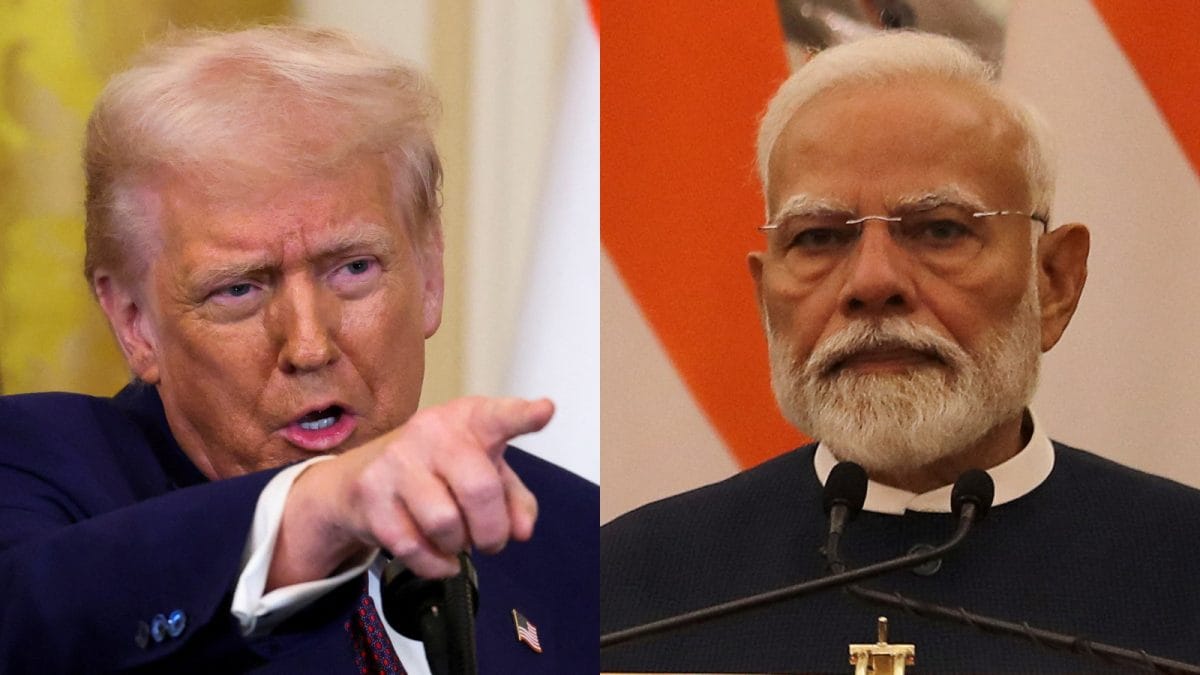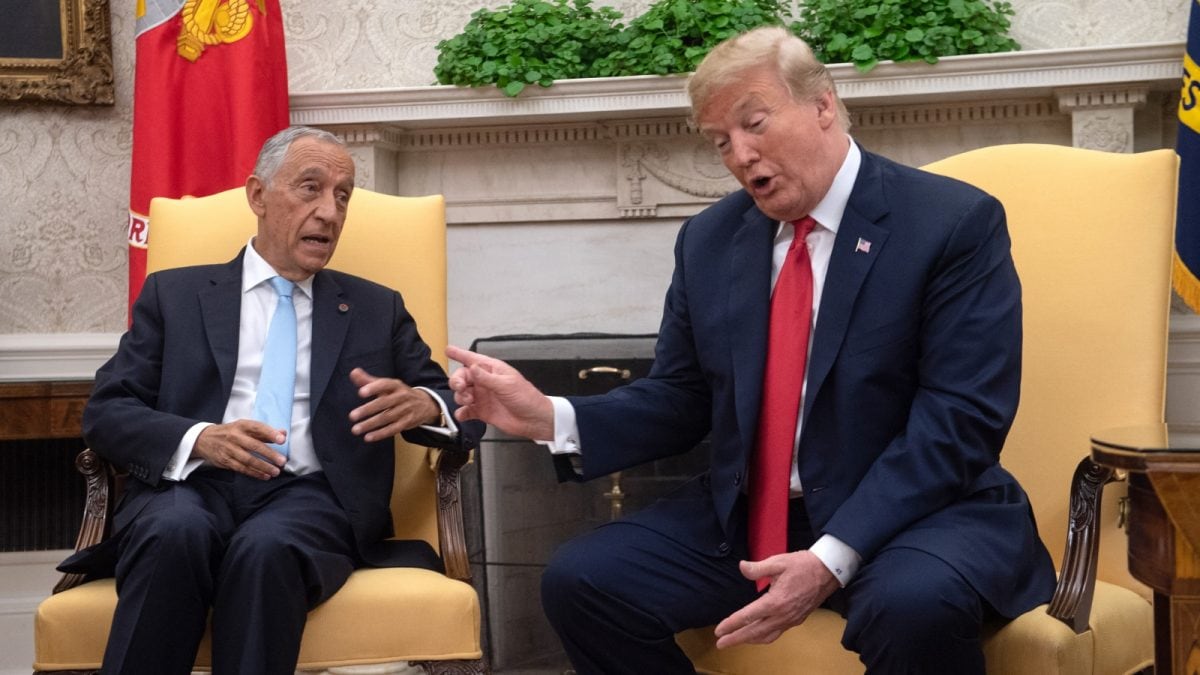Last Updated:
Trump aide Peter Navarro says Indian refiners flipped Russian ‘black market oil’ and bankrolled Putin’s war. But the facts, and the West’s own rules, tell a different story

Navarro’s statements resurfaced just as the Trump administration implemented the 50 per cent tariff on Indian goods on August 27. (Reuters Image)
Three days after the United States imposed a steep 50 per cent tariff on Indian exports, White House trade adviser Peter Navarro renewed his criticism of India’s energy ties with Moscow, this time calling New Delhi a “refinery profiteer” and a “laundromat for Russian oil”.
Navarro alleged that Indian refiners were helping Russia bypass sanctions and enabling its military operations in Ukraine. “Indian refiners, with their silent Russian partners, refine and flip the black-market oil for big profits on the international market – while Russia pockets hard currency to fund its war on Ukraine,” he posted on X.
Recommended Stories
3/ Indian refiners, with their silent Russian partners, refine and flip the black-market oil for big profits on the international market – while Russia pockets hard currency to fund its war on Ukraine. pic.twitter.com/TOOMFfFSYD— Peter Navarro (@RealPNavarro) August 28, 2025
He linked the imposition of the new tariff regime directly to these accusations, claiming that the 50 per cent duty, half for unfair trade and half for national security, was meant to “cut off the financial lifeline India has extended to Putin’s war machine.”
But the narrative doesn’t hold up against documented facts on sanctions, payment systems, trade volumes, and Western policy frameworks.
Was Russian Oil Ever Sanctioned?
No. Russian crude has not been sanctioned by the United States, the European Union, or the G7 since the start of the Ukraine conflict. Unlike Iranian or Venezuelan oil, which has been subject to blanket bans and enforcement actions, Russian crude has remained in circulation under a system designed to moderate its price without cutting off supply.
The West introduced a price-cap mechanism, not an embargo, specifically to allow Russian oil to keep flowing into global markets at a discounted rate. The goal was to avoid global price shocks while capping Moscow’s revenue.
What Is the G7–EU Price Cap System?
In March 2022, as oil prices surged and Brent crude touched 137 US dollars per barrel, Western nations adopted a price-cap framework to manage the crisis. Rather than impose sanctions that could trigger supply shortages, the G7 and EU passed 18 rounds of coordinated measures allowing the sale of Russian oil, but only below a pre-agreed ceiling.
The mechanism was designed to achieve three things:
- Prevent Russia from earning supernormal profits
- Keep global oil supply uninterrupted
- Avoid inflation and recessionary pressures worldwide
This framework allowed countries outside the sanctions bloc to continue importing Russian crude, provided it was purchased below the capped price.
Were India’s Oil Imports Within This Framework?
Yes. Oil purchases followed international pricing guidelines and complied with the price-cap system. No sanctions were breached. No international law was violated. Trade routes, payment methods and import volumes remained aligned with what the West had itself authorised.
There was no resale of crude in violation of sanctions. Refined products from Indian facilities, as with dozens of global refineries, continued to enter standard global trade flows.
Were Payments Made In US Dollars?
No. Indian refiners did not use US dollars to pay for Russian crude. The transactions were settled through traders in third countries using alternate currencies such as the UAE dirham (AED). The dollar was not part of the transaction chain.
Navarro claimed that India used its trade surplus with the United States to pay Moscow, but this is factually incorrect. A trade surplus simply means India exports more to the US than it imports, it does not imply that dollars earned from these exports are routed to Russia. In fact, India’s oil payments have consistently avoided the dollar channel to comply with Western frameworks and to prevent secondary sanctions.
Did The US Ever Ask India To Stop Buying Russian Oil?
No. At no point since February 2022 has the United States, under either the Biden or Trump administration, issued a public or diplomatic request for India to halt its Russian oil imports. On the contrary, American officials acknowledged the role played in stabilising global energy flows.
US Treasury Secretary Janet Yellen said the United States was comfortable with the oil purchases. Ambassador Eric Garcetti noted that they helped prevent a price spike. Geoffrey Pyatt referred to India as a key stabiliser.
No concerns were raised for more than two years. The first sharp criticism came only after trade talks stalled and the 50 per cent tariffs were triggered.
What Is The Basis of Navarro’s ‘Black Market’ Claim?
Navarro argues that Russian oil entering Indian ports is flipped by refiners for export and profit, thereby enabling Russia’s war economy. He calls it a laundering operation that hides behind technical neutrality.
However, Russian crude is not blacklisted. It is price-capped, meaning it can be lawfully purchased and refined. Refined products are not covered under the same set of restrictions and can legally enter the global market, including in Europe, where Indian diesel and jet fuel were widely consumed even after the Ukraine war began.
There is no legal basis for the term “black market” in this context.
Were Export Volumes Abnormally High?
No. India has long been one of the world’s largest petroleum exporters. The overall export volume of refined products has remained stable over the last four years, with only marginal shifts.
Refined product exports to the European Union increased slightly, from 12.6 million metric tonnes in FY 2021–22 to 21.1 million metric tonnes in FY 2024–25. These flows included diesel and jet fuel, mostly purchased by the Netherlands, France and Belgium.
There was no surge that would support claims of profiteering or secretive oil laundering.
Is India Alone In Refining Russian Crude?
No. Several countries continue to import, refine and resell Russian crude under the same pricing framework. Many of these refining operations support European and global markets. There is nothing unusual or hidden about the process.
Why Are These Allegations Surfacing Now?
Navarro’s statements resurfaced just as the Trump administration implemented the 50 per cent tariff on Indian goods on August 27. His social media thread appeared withina day of the duty kicking in, citing the oil trade as a national security concern.
Earlier remarks also show that the accusation had been building in phases. Navarro had warned in advance that tariffs would double if India did not halt Russian oil imports. He said India’s actions were prolonging the war, adding that the “road to peace runs through New Delhi.”
He described India’s tariffs as “Maharaja-level” and accused Indian refiners of cashing in on a “refining profiteering scheme.”
Conclusion
Russian oil was never sanctioned. It was brought under a price-cap system created by the West. India’s purchases followed that framework fully. No objections were raised by the United States until after trade negotiations collapsed.
About the Author

Karishma Jain, Chief Sub Editor at News18.com, writes and edits opinion pieces on a variety of subjects, including Indian politics and policy, culture and the arts, technology and social change. Follow her @kar…Read More
Karishma Jain, Chief Sub Editor at News18.com, writes and edits opinion pieces on a variety of subjects, including Indian politics and policy, culture and the arts, technology and social change. Follow her @kar… Read More
Loading comments…
Read More




